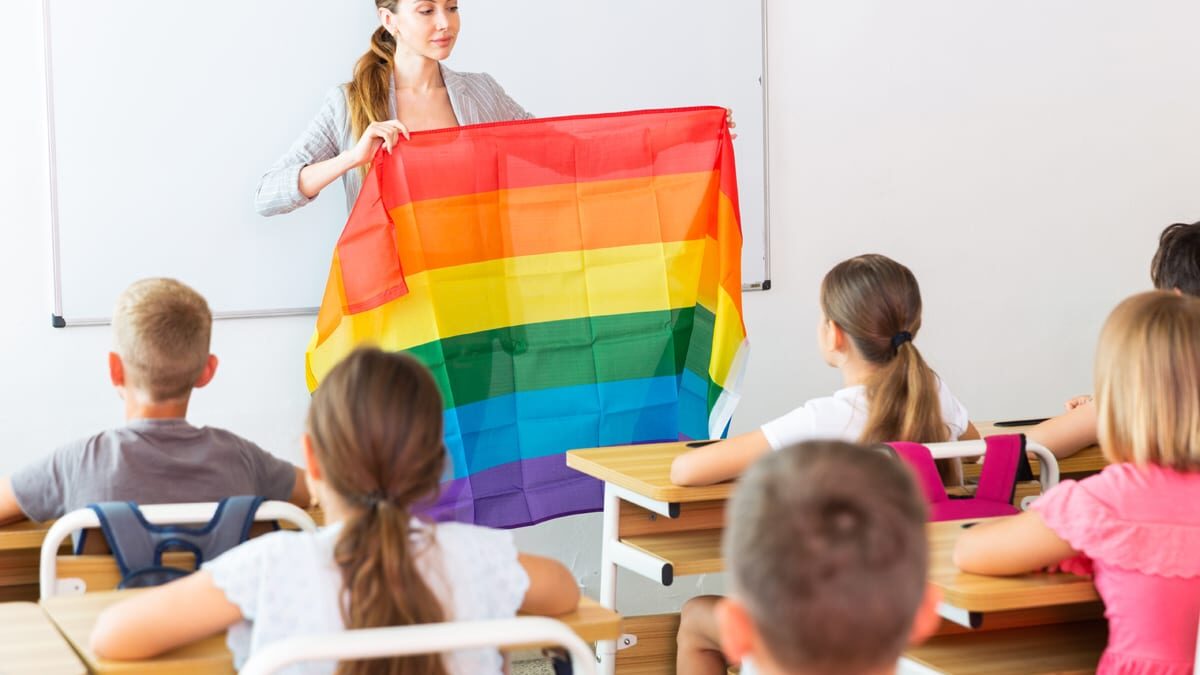How a BEd Honours in Gender Studies Advances Diversity & Inclusion
What if the classroom could be the starting point for real, lasting change? What if the way we teach and who we empower could help dismantle centuries of inequality? In South Africa and around the world, conversations about diversity and inclusion have never been more urgent. From schools to boardrooms, gender inequality, bias, and exclusion still shape the way people learn, lead, and live. Educators, now more than ever, are on the front lines, not just teaching subjects, but shaping values, identities, and the futures of their students. Enter MANCOSA's BEd Honours in Gender Studies, a programme designed for those who believe that education should uplift every learner, challenge outdated norms, and drive transformation from the inside out. In this post, we’ll explore exactly why diversity and inclusion are vital in the classroom and workplace and how this powerful qualification empowers educators and professionals to lead the way.

Why diversity and inclusion are vital in the classroom and workplace
In South Africa’s diverse society, diversity and inclusion are critical components of a thriving, just, and future-forward education system and workforce.
Whether in schools or corporate boardrooms, these principles help build environments where people feel seen, valued, and empowered to succeed, regardless of gender, race, background, or ability.
South Africa’s history of inequality makes the pursuit of inclusive education and workspaces particularly urgent.
Fostering a sense of belonging
Real inclusion begins with belonging. In classrooms, when learners from diverse gender identities, ethnicities, or socioeconomic backgrounds feel respected and acknowledged, they participate more actively and perform better academically.
This feeling of belonging is also extremely important in the workplace, making employees feel valued and accepted, regardless of their differences. As a result, they tend to work harder and perform better.
Encouraging broader perspectives and innovation
Diversity isn’t just morally right, it’s intellectually enriching. Classrooms that welcome various viewpoints allow students to challenge assumptions, empathise with others, and develop critical thinking.
As for the work environment, diversity in executive positions can also lead to better decision-making and have a positive impact on performance. In fact, according to McKinsey, companies with diversity in their executive teams are more likely to outperform those without.
Reducing bias and promoting equity
Unconscious bias often leads to marginalisation, even with good intentions. Inclusive practices, such as using gender-neutral language in schools, implementing diversity-focused recruitment policies, and providing anti-bias training in corporate settings, help break these patterns.
For example, an NGO could introduce gender-sensitivity training across its staff, which not only reduces discriminatory incidents but also improves collaboration and morale. In classrooms, using a curriculum that reflects diverse cultures, gender identities, and family structures helps all learners feel validated.
Preparing students and professionals for the real world
In a country with 11 official languages, multiple cultural identities, and a history of inequality, preparing young people to engage with difference is essential.
A BEd Honours in Gender Studies builds theoretical understanding and equips future educators with the tools to nurture inclusive classrooms and challenge discriminatory norms.
In turn, this has a direct impact on the workforce, as three out of four job seekers look for diversity when considering job opportunities.
5 Ways a BEd Honours in Gender Studies advances diversity & inclusion
In a country like South Africa, where inequality is deeply rooted in history and continues to impact access to education and opportunities, this BEd degree equips graduates with the tools to challenge injustice and drive meaningful change, both within the classroom and beyond.
Here are five powerful ways this qualification supports diversity and inclusion:
1. Equips educators to challenge gender bias in the classroom
Gender stereotypes in the classroom can limit students’ potential. For instance, boys may be subtly encouraged to pursue STEM subjects, while girls are steered toward the humanities.
This honours degree trains educators to recognise and disrupt these patterns, fostering classrooms where all learners feel empowered to pursue their interests freely.
2. Prepares graduates to lead inclusive curriculum development
Curricula that reflect diverse identities and experiences promote belonging and broaden worldviews. This degree enables educators to design lesson plans that go beyond traditional, Eurocentric narratives, incorporating African feminisms and cultural pluralism.
For example, a curriculum advisor working in the Western Cape could use their Academic Study of Gender background to revise a Grade 10 English literature syllabus to include African female authors. As a result, students may feel more connected to the material, and classroom discussions become more dynamic and inclusive.
3. Strengthens advocacy for marginalised voices
A deep understanding of intersectionality (how gender intersects with race, class, disability, and other factors) empowers graduates to advocate for the rights of marginalised individuals. Whether in schools or broader society, they become advocates for inclusive practices and policies.
The World Bank reports that empowering women and girls through education is one of the most effective ways to reduce poverty and promote social development.
4. Enhances leadership in inclusive school policy
Graduates of this programme are well-positioned to take on leadership roles in schools, district offices, or educational NGOs where they can influence and implement gender-equitable policies.
For example, a graduate working as a deputy principal could implement a new school-wide code of conduct that includes anti-discrimination clauses, gender sensitivity training for staff, and clear guidelines for reporting gender-based violence (GBV). This fosters a safer and more respectful environment for both students and teachers.
5. Creates career opportunities in equality-driven roles
The value of this BEd Honours extends beyond the classroom. Graduates are in demand across sectors where diversity, equity, and inclusion (DEI) are priorities, including:
- NGOs
- Policy research
- Corporate DEI consulting
- Human rights advocacy
- Curriculum development
This opens the door to a wide range of meaningful career opportunities, which can ultimately have a positive impact on the country as a whole.
Key gender studies programmes to support your education journey
MANCOSA offers a Bachelor of Education Honours in Gender Studies, which is a 1-year, NQF Level 8 Honours programme designed to deepen your expertise in gender-responsive education.
You’ll build on learner-centred and empowerment pedagogies, focusing specifically on how gender inequality shapes classroom dynamics and broader society.
Through modules that develop research capacity, learners produce a comprehensive research report, which is ideal preparation for future leadership roles.
Alternatively, MANCOSA also offers a B.Ed Honours in Educational Leadership & Management (NQF Level 8, 1 year).
This course is designed to develop your capacity to design inclusive school policies and lead gender-informed institutional change. This is a logical next step for Gender Studies Honours graduates aiming to move into school leadership or district education management.
Register for a BEd Honours in Gender Studies online
Diversity and inclusion are extremely important both in education and the workforce. Not only can it lead to higher academic and career performance, but it can also have a significant impact on society as a whole, making the country and world a more inclusive place.
If you’d like to build your diversity and inclusion skills so you can make a difference, have a look at MANCOSA’s Bachelor of Education Honours in Gender Studies.
In addition to more diverse education, the academic industry is undergoing significant changes. Discover some of the top education trends for 2025 and beyond.





